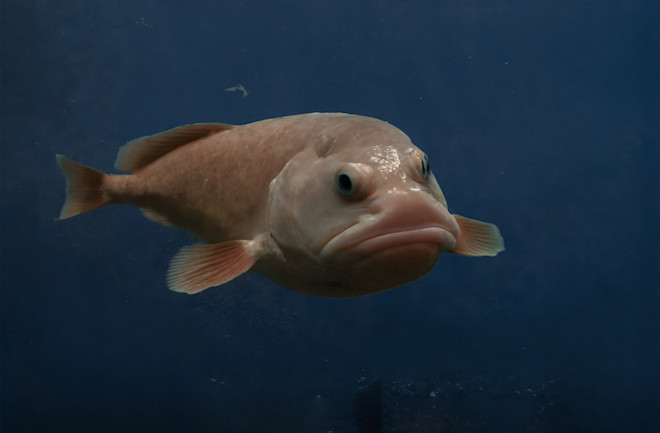Blobfish Crowned New Zealand’s Fish of the Year
International International NewsPosted by NewAdmin on 2025-03-19 08:46:58 |
Share: Facebook | Twitter | Whatsapp | Linkedin Visits: 37

Once labeled the “world’s ugliest animal,” the blobfish has undergone a remarkable transformation in public perception by winning New Zealand’s Fish of the Year award for 2025. The annual competition, organized by the Mountains to Sea Conservation Trust, aims to raise awareness about the country’s native aquatic life. The blobfish received 1,286 votes, narrowly defeating the orange roughy by around 300 votes in a contest that attracted a record 5,583 participants.
The blobfish, scientifically known as Psychrolutes marcidus, is a deep-sea creature found at depths of 2,000 to 4,000 feet off the coasts of New Zealand and Australia. Its body lacks a swim bladder, muscles, and a full skeleton, allowing it to withstand extreme underwater pressure. The gelatinous structure enables it to float just above the ocean floor, where it passively waits for prey. Despite its sluggish appearance, the blobfish is a dedicated parent, with females laying up to 100,000 eggs and guarding them diligently until they hatch.
The fish gained global attention in 2013 when a disfigured out-of-water photo of it went viral, reinforcing its reputation as an unattractive species. However, experts clarify that its unusual appearance is a result of decompression when brought to the surface. In its natural habitat, the blobfish resembles a more typical deep-sea fish.
Although little is known about the blobfish’s conservation status, it faces threats from deep-sea trawling, particularly as bycatch in the fishing industry targeting orange roughy. Environmental groups have raised concerns about bottom-trawling practices, which damage marine ecosystems and endanger species like the blobfish. New Zealand, responsible for 80 percent of the global orange roughy catch, plays a crucial role in these conservation efforts.
The Fish of the Year competition, inspired by the successful Bird of the Year contest, is part of a broader mission to highlight New Zealand’s rich aquatic biodiversity. Many of the competing species, including the longfin eel and pygmy pipehorse, are considered vulnerable. Support for the blobfish surged in the final days of voting, partly due to a campaign by local radio hosts. Their lighthearted approach encouraged people to rally behind the misunderstood creature, helping to restore its dignity. The blobfish’s victory not only recognizes its ecological significance but also reinforces the importance of marine conservation in New Zealand.
Search
Categories
Recent News
- Big Tech's Child Safety Crisis: Australia Sounds the Alarm
- Blue Cloud Softech's $150M Edge AI Chip Venture
- Nuclear Diplomacy Revived: US and Iran Resume Talks
- Curiosity Illuminates Mars: Unveiling the Red Planet's Night Secrets
- Telangana's Cybercrime Conclave: AI Takes Centre Stage
- SEIL's Rs 20 Crore Hospital Project: A Milestone for Rural Healthcare
- India's Strategic Patience: Navigating US Trade Tensions
- Cyclone Ditwah: Andhra on High Alert as Storm Approaches
Popular News
- Navigating IPO Market Dynamics Amid Volatility and Regulatory Changes
- Massive Worldwide Microsoft Outage Disrupts Multiple Sectors
- Panjapur Bus Stand to Reshape TNSTC Routes
- తెలుగుదేశం పార్టీ - పేదరికాన్ని నిర్మూలించడంలో వాగ్దానం
- Universities Embrace Remote Learning Technologies Amidst Ongoing Pandemic